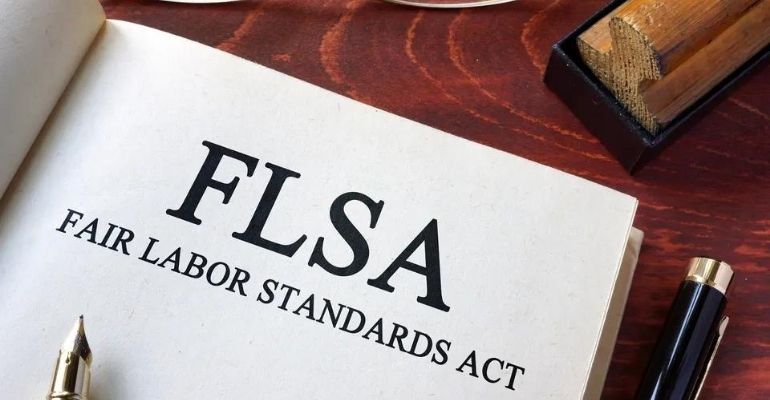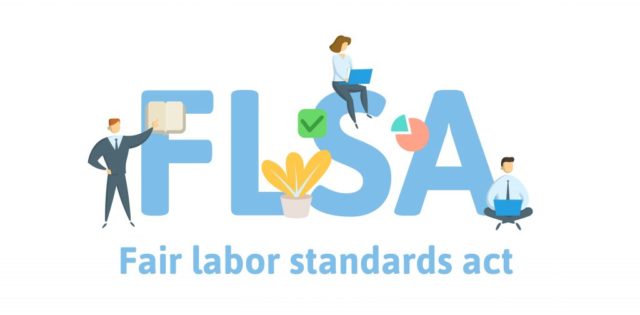
What Is the Fair Labor Standards Act – and Why Should I Care?
Many laws exist to protect employees, including the Fair Labor Standards Act. You may not think about employee rights very often – but violations occur in Florida and across the United States more frequently than you may know. Employers take actions that affect workers’ lives – and livelihoods – which is why the Fair Labor Standards Act and other federal and state employment laws are on the books.
What Is the Fair Labor Standards Act?
The Fair Labor Standards Act is a United States labor law that “establishes minimum wage, overtime pay, recordkeeping, and youth employment standards affecting employees in the private sector and in Federal, State, and local governments.”
What Is The Purpose Of The Fair Labor Standards Act?

Administered by the Wage and Hour Division at the U.S. Department of Labor, the federal Fair Labor Standards Act (FLSA) serves as powerful legislation to ensure workers across industries and the country are paid what they are lawfully owed.
The FLSA also restricts child labor, protecting young people in Florida and beyond from getting taken advantage of by employers. It has the most extensive child labor provisions of any state or federal law. The FLSA sets the minimum age of employment at 14, but it does restrict the number of hours and days the minor can work, which is intended to allow young people the time to go to school and get an education.
If employers violate the Fair Labor Standards Act, they can be held accountable for their unlawful actions. Employee rights lawyers represent employees in various cases, including not paying minimum wage, not paying overtime for legitimate time worked over a 40-hour workweek, and violations of child labor law.
When Was the Fair Labor Standards Act Established?
The Fair Labor Standards Act was established more than eighty years ago. Legislators were focused on employee rights all the way back in the last century.
Officially, the law is called the Fair Labor Standards Act of 1938, and it is still in effect to this day.
Who is Exempt from the Fair Labor Standards Act (FLSA)?
Not everyone who works in the United States is covered under the Fair Labor Standards Act. Some individuals are considered “exempt” and are not protected by the law. There are two categories of exempt workers:
- individuals exempt from both minimum wage and overtime, and
- individuals exempt from overtime only.
One condition of exempt workers is that they must be paid at least $23,600 annually. Additionally, many of these workers that would be considered exempt would be paid on a salary basis. Certain duties are detailed in the regulations of the Fair Labor Standards Act. Those in leadership positions are often exempt from the FLSA.
Additionally, employers who use no (or little) outside labor are typically exempt from following the FLSA. Other examples of exempt employees include independent contractors, airline employees, and companions to the elderly.
Problems arise when employers misclassify workers as exempt, which is not uncommon. If you feel you have been misclassified by a company you work for and face issues covered by the FLSA, you should consult with an employee rights attorney.
Current FLSA Laws You Need to Know
Employees across Florida and the U.S. need to be aware of the FLSA. The legislation has specific language around several issues relevant to workers that are protected under the act.
Specifics of the FLSA include:
- The definition of a 40-hour workweek. If individuals who are not exempt from the FLSA work beyond that in a particular week, they are lawfully due overtime pay.
- A federal standard for minimum wage. The federal minimum wage is currently $7.25/hour. However, the State of Florida’s minimum wage is $10.00/hour ($6.98 for tipped employees). Even though workers are guaranteed a minimum wage as determined by the federal government, employees in Florida are entitled to the current state minimum wage.
- Restrictions on child labor. Individuals under the age of 18 are not allowed to have jobs that are considered hazardous. Fourteen and fifteen-year-old employees are permitted to work only three hours per day on a school day and no more than 18 hours per week when school is in session. Seventeen and eighteen-year-olds can work an unlimited number of hours in a non-hazardous job.
- Recordkeeping requirements. For each worker that is defined as an employee, employers are mandated to document time and pay. Independent contractors are not included in this law.
Violations of the Fair Labor Standards Act are considered very serious under the law. First, as a general rule, employers that classify an employee as exempt when they are not considered exempt under the law must reimburse the employee for lost income due to the misclassification.
Second, the employer may be subject to criminal prosecution. They may also face penalties and fines up to $10,000 or $1,000 for each violation. This amount will depend on the “willfulness” of the violation.
When an employment lawyer gets a case of suspected misclassification of an employee as exempt, they will perform a thorough investigation to determine what occurred. Depending on the situation, the employee may be entitled to significant compensation.
What to Do If Your FLSA Rights are Violated in Florida
If you believe your rights under the Fair Labor Standards Act have been violated, know that there are legitimate options that hold employers accountable.
Whether they haven’t been paying you at least minimum wage, have misclassified you as exempt, or have neglected to pay you overtime when you have worked more than forty hours in a workweek, an employee rights attorney can help.
Wenzel Fenton Cabassa, P.A. cares deeply about employee rights and has helped thousands of people across the state when their rights have been violated. Our employment lawyers have the experience and expertise you need to make a strong case.
Contact us today for a free, confidential consultation. We have multiple locations across Florida, including Tampa, Orlando, Miami, Sarasota, St. Petersburg, Jacksonville, and West Palm Beach.
Please Note: At the time this article was written, the information contained within it was current based on the prevailing law at the time. Laws and precedents are subject to change, so this information may not be up to date. Always speak with a law firm regarding any legal situation to get the most current information available.








